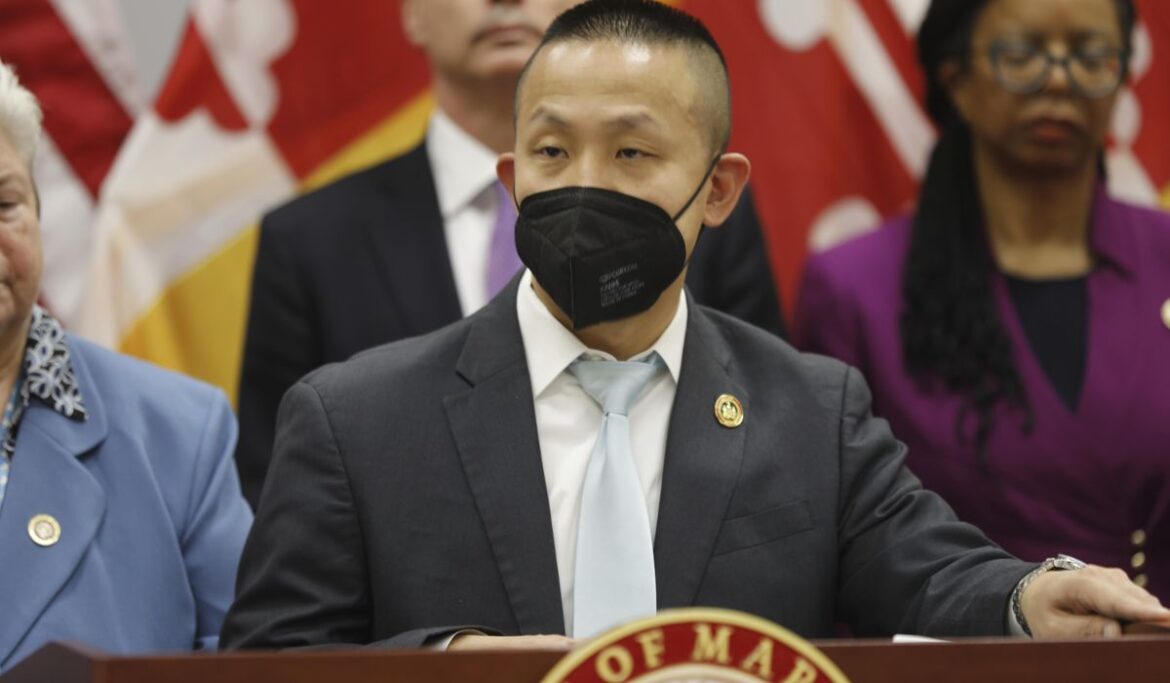Voting rights activists and state Democratic Party officials say the way the Maryland Legislature uses appointments to fill vacancies is “undemocratic.”
Nearly half of the state lawmakers in Montgomery County and a quarter statewide are not elected when they first get their seats in the General Assembly, according to Common Cause Maryland, a watchdog group that advocates for voting rights and fair elections.
Currently, when a state senator or delegate dies, resigns or is disqualified, the governor appoints a replacement whose name is submitted by the state central committee of the same political party as the legislator who vacated the seat.
The process, critics say, gives the political parties more power than voters.
Common Cause and some lawmakers aim to change that during the three-month General Assembly session that opens on Jan. 10.
“The current system is undemocratic; if anything, it is self-serving for political insiders,” said Liza Smith, who serves on the 14th District Democratic Central Committee in Montgomery County, the state’s most populous jurisdiction.
“When 41% of the county legislative delegation has been appointed by a vote of 13 people on a party central committee, it is time to institute special elections to allow the people to vote to fill legislative vacancies. Democracy demands no less,” Ms. Smith said.
Under the current system, open positions in the solid-blue state’s General Assembly are filled by candidates who are appointed. The appointees are picked by elected party officials and are sent to the governor for approval. Those who are appointed have to be in the same party as the person they’re replacing, and they stay in the position until the four-year term is over.
A survey released in October by Common Cause Maryland found that 85% of the state’s residents are in favor of switching to a special elections system.
“The General Assembly can’t continue to allow a handful of individuals to speak on behalf of thousands of voters,” said Joanne Antoine, the executive director of Common Cause Maryland. “Letting another legislative session pass with no action continues to diminish the voice of the voters.”
In 2023 alone, 10 vacancies in the General Assembly were filled via appointments. Many of those appointed then go on to be elected for full terms. The appointment gives them a leg up in the election with better name recognition and the other benefits of incumbency.
It wouldn’t be abnormal to use special elections — vacancies for Maryland’s comptroller and attorney general are filled that way.
Maryland is among the 25 states that use appointments for legislative vacancies, while the other 25 use special elections, according to the National Conference of State Legislatures.
Opponents to changing Maryland’s process cite the time and money that go into special elections.
Lawmakers have called for special elections before but to no avail. Sen. Clarence K. Lam, Howard County Democrat, tried multiple times to get a bill passed. Last year, a bill that allowed appointments but ordered special elections in presidential election years passed the state Senate but languished in a House committee.
Delegate Jheanelle Wilkins, a Montgomery County Democrat on the committee, said she and her colleagues would tackle the issue but described it as complicated.
“We’ll review and consider any bills on this topic that come before us to find the right balance and address the vacancy process,” Ms. Wilkins told The Washington Times. “There are a number of factors to balance, including ensuring timely representation for residents, cost, candidate equity and inclusion, campaign finance, and the timing of the vacancy, which all impact upholding an inclusive democracy.”
Common Cause and liberal activist group Maryland PIRG have backed various proposals, including compromises like Mr. Lam’s bill.
“It’s way past time for Maryland to establish a special elections process for legislative vacancies,” Maryland PIRG Director Emily Scarr said. “There is no doubt that appointed policymakers are committed to public service and their districts, but our democracy would be stronger and more resilient if we joined state legislatures across the country that hold special elections.”
Senate President Bill Ferguson, Baltimore Democrat, said in October that changing how vacancies are filled would be taken “very seriously” in the upcoming session.
“I do not think it is fine the way it is. The question then becomes, ‘What do you do,’” Mr. Ferguson said at a District 18 Democratic Club breakfast meeting in Chevy Chase.


